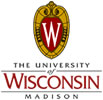Introducing Silo: A New Computing Environment for Working with Sensitive Data
We are pleased to announce that Silo, a new computing environment for working with sensitive data, is now available. Silo consists of an isolated file system plus a Windows server farm, WinSilo, which is similar to Winstat. Linux servers will be added in the near future. Silo has strict security measures in place so that it can be used to store and analyze health information covered by HIPAA and other sensitive data.
Because Silo is a shared environment like Winstat it is very easy for us to accommodate new researchers and projects. Researchers will probably need to get approval from their IRB, the campus Office of Cybersecurity, or other authorities before storing data on Silo, but using Silo will expedite that process because it has already been approved for other projects.
We are very excited to add this capability to the SSCC. More details about Silo can be found on the SSCC Knowledge Base article Using Silo. If you are interested in using Silo for your research please contact the Help Desk.
Training on Mixed Models
We have one more workshop left this semester, but it's an important one: Mixed Models in R using lme4. Mixed models are an area of intensive research and there have been some important developments in the last several years. This workshop will reflect Mark's recent collaboration with SSCC researchers and members of the Statistics Department in implementing mixed models.
While the examples will be demonstrated in R, most of the discussion will be about the statistical techniques and not the software so Stata users are also encouraged to attend. Be sure to register.
Filtering Email by the Address it was Sent To
Prior to the Office 365 migration we know some of you used your SSCC email address and your WiscMail address for different purposes, and having them combined created problems. Initially we were told it was impossible to filter mail based on the address it was sent to, but it turns out there is a way.
In Outlook, click Rules, Create Rule, then Advanced Options. Check the box for with specific words in the message header. Then click on specific words in the rule description at the bottom and type in the email address you want the rule to apply to (e.g. messages sent to dimond@wisc.edu rather than my primary address, rdimond@ssc.wisc.edu). Click Next to choose what you want Office 365 to do with these messages, then Finish when you're done.
The process is similar in the Outlook Web App: click Create Rule, remove the conditions OWA sets up automatically, and then instead of going to Advanced Options use the drop-down menu to choose It includes these words and in the message header.
Tip: Avoiding Phishing
One of the sad realities of modern computing is emails that try to trick you into giving out your password. Keep in mind that legitimate email from the SSCC will always include the real name of an actual SSCC staff member and will never come from something generic like "ssc.wisc.edu team." Another giveaway is deceptive links. Links can be associated with whatever text the author wants, but no legitimate email should ever have the text for a link show one address while actually pointing to another. In most browsers you can tell where a link will go by holding the mouse pointer over it without clicking and then looking at the bottom of the screen. For example, the following link says it goes to the UW home page, but if you hold your mouse over it you'll see it actually goes to the SSCC home page: http://www.wisc.edu.
Another phishing variant involves calling you on the phone and claiming your computer has viruses or other problems the caller can fix if you give them access to your computer. If you're lucky they'll only charge you a few hundred dollars to install some poor-quality antivirus software. But they could lock up your computer and all the files on it unless you pay a ransom, or install monitoring software that gives them any banking or other useful information you type on your computer. Reputable computing firms never make these kinds of calls.
Unfortunately there's nothing SSCC can do to stop these kinds of calls and emails, so there's no need to report them to the Help Desk. Just hang up or delete right away.

